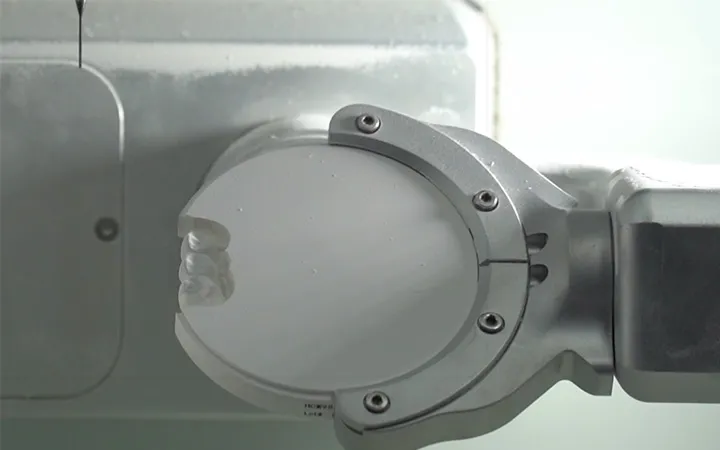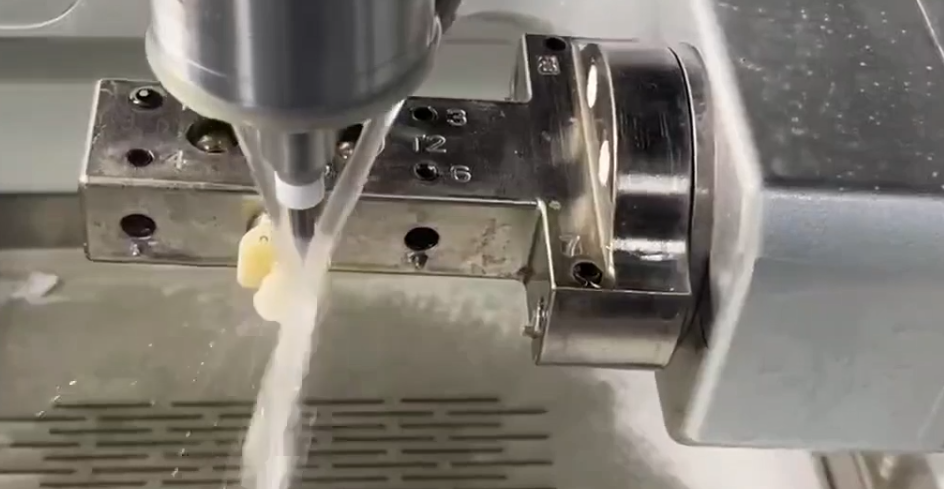In modern dentistry, the adoption of digital workflows has become more than a trend—it is now a necessity for practices and labs that want to deliver precise, efficient, and aesthetic restorations. At the heart of this transformation lies the zirconia milling machine, an essential piece of equipment that allows dentists and technicians to produce crowns, bridges, and other restorations with speed and accuracy.
Whether you run a small private clinic or manage a large dental laboratory, choosing the right zirconia milling machine can greatly influence your efficiency, costs, and patient satisfaction. This guide explores the differences between wet and dry milling, the key factors to consider before making a purchase, and a review of some of the top suppliers in the market.
When it comes to zirconia milling, one of the first decisions to make is whether to invest in a dry milling or wet milling machine. Each has its own advantages and limitations.
How it works: Processes zirconia in a softer, pre-sintered state.
Advantages:
Faster milling times (no drying cycle required).
More cost-effective—no need for coolants.
Well-suited for high-volume labs producing zirconia-only restorations.
Considerations:
Produces dust, requiring a good suction or evacuation system.
Limited to pre-sintered zirconia and not ideal for glass ceramics or metals.

How it works: Uses water or other liquid coolants to cut sintered or hard materials.
Advantages:
Ideal for hard materials like glass ceramics, composites, and metals.
Produces smoother surface quality with finer tool precision.
Reduces the risk of heat damage to the material.
Considerations:
Slower and often more expensive due to coolant usage.
Requires additional cleaning and maintenance.

Some modern machines now offer both wet and dry milling capabilities, giving labs and clinics greater flexibility. This hybrid option is especially beneficial for labs that want to process multiple materials (zirconia, lithium disilicate, PMMA, titanium, etc.) within a single system.
Before making your investment, here are the most important factors to evaluate:
Milling Type (Dry, Wet, or Hybrid): Align your choice with the materials you plan to work with.
Size and Space: Compact models are ideal for small clinics, while larger labs may need multi-axis machines with higher throughput.
Speed and Efficiency: Faster cutting times improve productivity, but balance speed with precision.
Precision and Tool Longevity: Look for machines with stable frameworks, minimal vibration, and durable burs.
Material Versatility: Consider whether you’ll need to mill only zirconia or also glass ceramics, PMMA, or titanium.
Software Compatibility: Open systems provide flexibility with different CAD/CAM software, while closed systems offer seamless integration.
Ease of Use and Maintenance: User-friendly interfaces and straightforward cleaning procedures save time.
Supplier Support and Training: Reliable technical support, spare parts availability, and training resources are essential.
Cost of Ownership: Beyond the initial purchase, factor in ongoing costs such as burs, coolant liquids, software updates, and potential servicing.
Here are some well-regarded suppliers in the dental industry:
Ivoclar Vivadent – Premium milling systems designed for precision and aesthetics, backed by integrated digital workflows.
Dentsply Sirona – Known for innovation and seamless CAD/CAM solutions, suitable for clinics seeking all-in-one systems.
VHF – German engineering with robust machines that support both wet and dry milling, ideal for labs with diverse needs.
Roland DG – User-friendly and cost-effective solutions, popular among small clinics and labs for their reliability.
HONCHON – A strong option for practices looking for value-for-money machines with solid zirconia expertise.
Amann Girrbach – Offers advanced, versatile systems trusted by professional dental labs worldwide.
imes-icore – High-end solutions for large-scale labs requiring superior precision and multi-material compatibility.
Small Clinics: Consider compact, dry milling machines like Roland DG or entry-level VHF models. They save space, are easy to operate, and deliver solid results for zirconia restorations.
Large Dental Labs: Hybrid systems from Ivoclar, Dentsply Sirona, or Amann Girrbach provide the flexibility and throughput needed for multi-material, high-volume production.
Budget-Conscious Buyers: HONCHON and Roland offer reliable, affordable options with essential features.
Premium Segment: For those prioritizing precision, durability, and digital workflow integration, look at Ivoclar Vivadent, VHF, or imes-icore.
Selecting the right zirconia milling machine is not just about purchasing equipment—it’s about investing in your practice’s future. By carefully evaluating whether you need dry, wet, or hybrid milling, as well as considering factors like size, speed, versatility, and after-sales support, you can make an informed decision that enhances your workflow, improves patient outcomes, and ensures long-term value.
Tags: zirconia milling machine, dental CAD/CAM, wet vs dry milling, dental milling equipment, digital dentistry